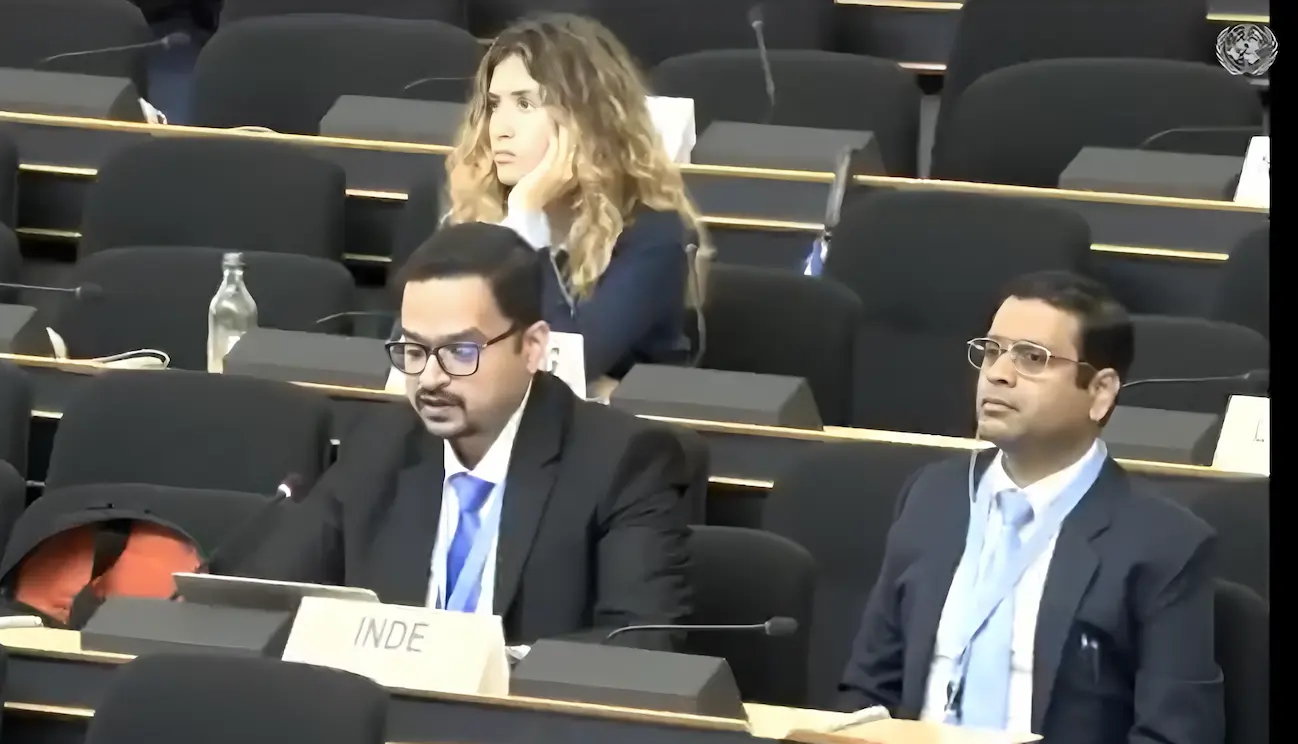
Blistering Rebuttal: India Slams Switzerland Over Minority Remarks at UNHRC
India Tells Switzerland to Fix Its Own Racism First – A heated exchange unfolded at the United Nations Human Rights Council (UNHRC) in Geneva this week, as India sharply rebuked Switzerland over comments on minority rights and free speech. The Swiss delegation, currently holding the UNHRC presidency, called on India to protect minorities and uphold media freedom. But India didn’t take the criticism lightly and fired back with a bold offer: to help Switzerland tackle its own issues of racism, discrimination, and xenophobia.
What Sparked the Clash at the UN?
During the 60th session of the UNHRC, Swiss diplomat Michael Meier made a statement urging India to take “effective measures to protect minorities and uphold the rights to freedom of expression and freedom of the media.” He grouped India with countries like Syria, Turkiye, and Serbia each facing serious human rights concerns.
India’s response was swift and pointed. Kshitij Tyagi, India’s representative in Geneva, called the remarks “surprising, shallow, and ill-informed.” He accused Switzerland of wasting the Council’s time with “forced narratives” that misrepresent India’s reality.
Tyagi reminded the Council that India is “the world’s largest, most diverse, and vibrant democracy” with a deep-rooted tradition of pluralism. He then turned the tables, saying:
“India remains ready to help Switzerland address its own challenges—racism, systematic discrimination, and xenophobia.”
India’s Counterattack: A Lesson in Diplomatic Reversal
India’s rebuttal wasn’t just defensive, it was strategic. By offering to “help” Switzerland, India reframed the conversation and shifted the spotlight onto Europe’s own human rights issues.
Key Points from India’s Response:
- Switzerland’s remarks were labelled as “shallow” and “ill-informed.”
- India emphasized its democratic values and pluralistic society.
- The offer to assist Switzerland was both sarcastic and symbolic.
- India urged the Council to focus on real issues, not political posturing.
This kind of diplomatic reversal where a country responds to criticism by highlighting the accuser’s flaws, is becoming more common in global forums. It’s a way to neutralize pressure and assert moral equivalence.
What’s Behind Switzerland’s Criticism?
Switzerland’s comments were part of a broader statement addressing human rights concerns in multiple countries. Alongside India, the Swiss delegation raised issues about:
- Violence during protests in Serbia
- Abductions of women in Syria
- Restrictions on free assembly in Turkiye
While Switzerland is known for its neutral stance, its role as UNHRC president gives its statements extra weight. That’s why India’s strong reaction was not just about defending its image, it was about challenging the credibility of the Council itself.
India also reminded the Council that criticism should be based on facts, not political narratives. Tyagi’s message was clear: don’t use the UN platform to push biased or outdated views.
Why This Matters: Global Diplomacy in the Age of Accountability
This exchange between India and Switzerland highlights a growing trend in international relations: countries are no longer quietly accepting criticism. Instead, they’re pushing back—especially when they feel misrepresented.
What This Reveals:
- Diplomatic Assertiveness: India is increasingly vocal in defending its global image.
- Mutual Scrutiny: Western nations are being held accountable for their own human rights records.
- Changing Power Dynamics: Emerging democracies like India are challenging old hierarchies in global forums.
- Public Diplomacy: These exchanges are not just for diplomats, they shape public opinion and national pride.
India’s offer to “help” Switzerland wasn’t just a jab, it was a reminder that no country is immune to scrutiny. Racism and xenophobia are global issues, and pointing fingers without introspection weakens the credibility of international institutions.
India Tells Switzerland in A New Tone in Global Conversations
India’s response to Switzerland at the UNHRC was more than a rebuttal, it was a statement of confidence. By flipping the narrative, India positioned itself not just as a subject of human rights discussion, but as a contributor to global solutions.
Whether this exchange leads to deeper dialogue or further tension remains to be seen. But one thing is clear: the age of one-sided criticism is fading. In its place, we’re seeing a more balanced, more assertive, and more transparent form of diplomacy where every nation is both a critic and a candidate for improvement.
Also read: “Modi’s War?”- Truth vs Blame: US Analyst Navarro Exposes Flawed Accusation Against Modi
Stay informed with the latest news and updates – only on Rapido Updates.